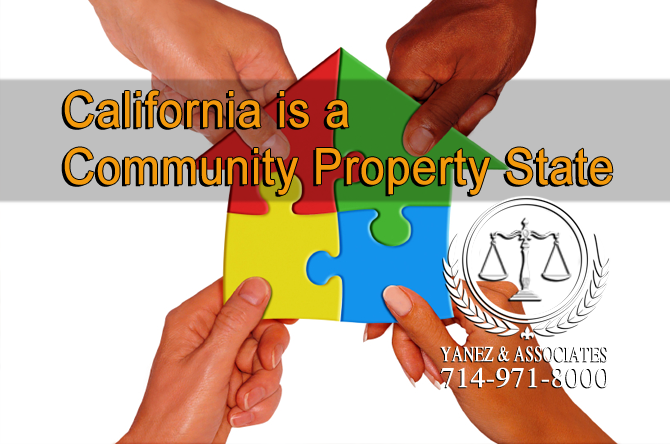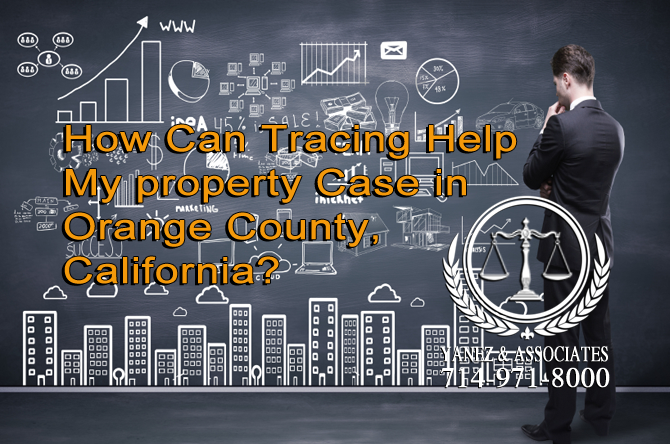Property Division FAQ: I commingled my separate property by adding my spouse to the deed in OC California, now what happens?
I Commingled My Separate Property in California. How is This Handled in Divorce?
California is a community property state, which means that property and debts that are considered to be community property and community debts will be divided between the two spouses or partners during the process of divorcing or legally separating. In order to do this, however, all property and debts must first be classified as either community property or separate property.
Commingling is one of the more complicated aspects of property division in California. It blurs the line between separate property and community property, and when it is difficult to classify property as either separate or community property, the process of dividing the property between the spouses cannot move forward.
When commingling occurs, the process of determining which property and how much of it is considered separate and community is called tracing. In some cases, tracing can help one spouse prove that his or her property, or a portion of it, should be considered separate property in a divorce.
It is possible for you and your spouse or partner to determine how you want to divide your property outside of the courts - but you will have to have your property division agreement approved by a judge and signed into an order. Usually, if you divide your property outside of the courtroom, it will be done with the assistance of a family law attorney either in divorce mediation or through collaborative law. Both of these processes are types of alternative dispute resolution, and are specifically designed to help parties come to an agreement with a legal issue.
Before we go into detail about how commingling can negatively affect you in the case that you have commingled a home that you owned prior to your marriage, we’ll go over the basics of community property state.
California is a Community Property State

In California how is property classified and what property gets divided in a divorce or legal separation?
In California, in a divorce or legal separation, property needs to be divided between the two parties. Not all property is divided; first the property needs to be classified as either separate property or community property. The community property is then divided equally between the two spouses.
So, how is property classified as either community property or separate property?
Property
If you or your spouse own anything that can be bought or sold, or if you own anything of value, it is considered property under California law, and will be divided in a divorce or a legal separation. Debts are also divided the same way as property.
Property includes things like vehicles, businesses, homes or other buildings, land, furniture, clothing, electronics, and even digital media. It also includes things like stocks, patents, pension plans, bank accounts, cash, and insurance plans that have cash value, like life insurance.
Community Property
In a divorce or legal separation, community property is the part of the property that will be divided equally between the spouses. In order to keep property entirely for yourself, your best option is to ensure that it is classified as separate property, which is not eligible for division.
Community property, loosely defined, is any property that the spouses or partners mutually own. This includes anything that either partner or spouse earned, or either party has acquired between the date of the marriage or registration of the domestic partnership, and the date of separation. This includes debts acquired between these times as well.
This means that anything purchased with community funds is also considered community property. Any money earned during the marriage or registered domestic partnership is considered community property - as is anything purchased with those funds.
The only exceptions to this loose definition of community property involves gifts and inheritances that were given to, or inherited by, one spouse or partner during the marriage or registered partnership. In addition to gifts and inheritances being excluded from the community property category, any property bought with any gifts or inheritances, or with the funds from selling a gift or inheritance, is also excluded from community property.
Separate Property
In a divorce or a legal separation, separate property is the part of property that is not divided equally between the spouses, because it already belongs to one spouse or the other. The best way to keep property for yourself and avoid losing it to your spouse is to make sure that it is categorized as separate property instead of community property.
Separate property includes any property that was acquired prior to the date of the marriage or the registered domestic partnership, or any that was acquired after the date of separation. It also includes property acquired at any time by one party as a gift or an inheritance, or anything purchased with separate property.
Quasi -Community Property`
Quasi - community property is property that would ordinarily be considered community property, except for the fact that it was purchased outside of California. Property that was purchased in another state, perhaps while you and your spouse or partner were living or working in another state, but that you still own and have brought back to California is considered quasi - community property.
Under California law, quasi - community property will be treated like community property.
What is Commingling in California?

My spouse has helped me in the past with my mortgage, does that mean my separate property is now community property?
One of the biggest issues with dividing property is classifying it with as either separate property or community property. While the definitions above may seem straightforward for the most part, commingling can make the classification process more complex than it needs to be.
For example, consider the following situation. If one spouse purchases a home prior to the date of the marriage, the home is considered separate property. However, even if that same spouse continues to make payments on the home after the date of the wedding and the other spouse does not, the incomes of both spouses is considered to be community property once they are married. Making payments on the home with funds that are considered community property mean that the equity in this home are now considered partially separate property and partially community property. In other words, this property is considered to have been “commingled”.
Commingling can happen in a variety of ways, including using items that were once separate as a community item, and vice versa.
It is important to remember that when it comes to debts and finances, including credit cards, even if only one spouse’s name is on the legal documents, property is still considered community property or debt.
How Can Tracing Help My property Case in Orange County CA?

What process is used to Help determine if commingling has occurred with my property Case in Orange County, California?
The process of determining whether commingled property is separate or community property is called tracing. Tracing might be required in some cases when it comes to commingled property in order to divide property legally between the spouses.
Tracing can be a complicated process, especially if the commingling has been going on for some time, or if the spouse’s finances are extremely intertwined. If it is possible to trace the property back to its origin, it may be easier to classify.
In some cases, if a large amount of community property is commingled with a small amount of separate property, all of the property will be considered community property. Likewise, if a large amount of separate property is commingled with a small amount of community property, the property is likely to all be considered separate property.
The more property is involved, and the longer the marriage lasted, the more complex the process of tracing and classifying property can get.
California Property Division Attorney
Remember that tracing can be a lot of work, as can the process of classifying property as either community or separate. If you and your spouse cannot work out a property division agreement on your own and it does come to court, it may be a costly process, and you may need to hire professionals to look into your finances and your history.
It is in your best interest to hire a quality family law lawyer who has experience dividing property in divorces in California, including complex and high asset divorces. You do have a lot to lose, and going into a property division case alone is very risky.
If you are ready to discuss your options with a qualified property division attorney in Orange County, California, contact the lawyers at Yanez & Associates today. We offer free initial consultations so that you can get to know our firm and ask questions about your case and the legal process of dividing property in a divorce or a legal separation.













